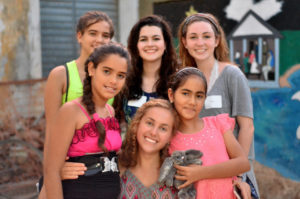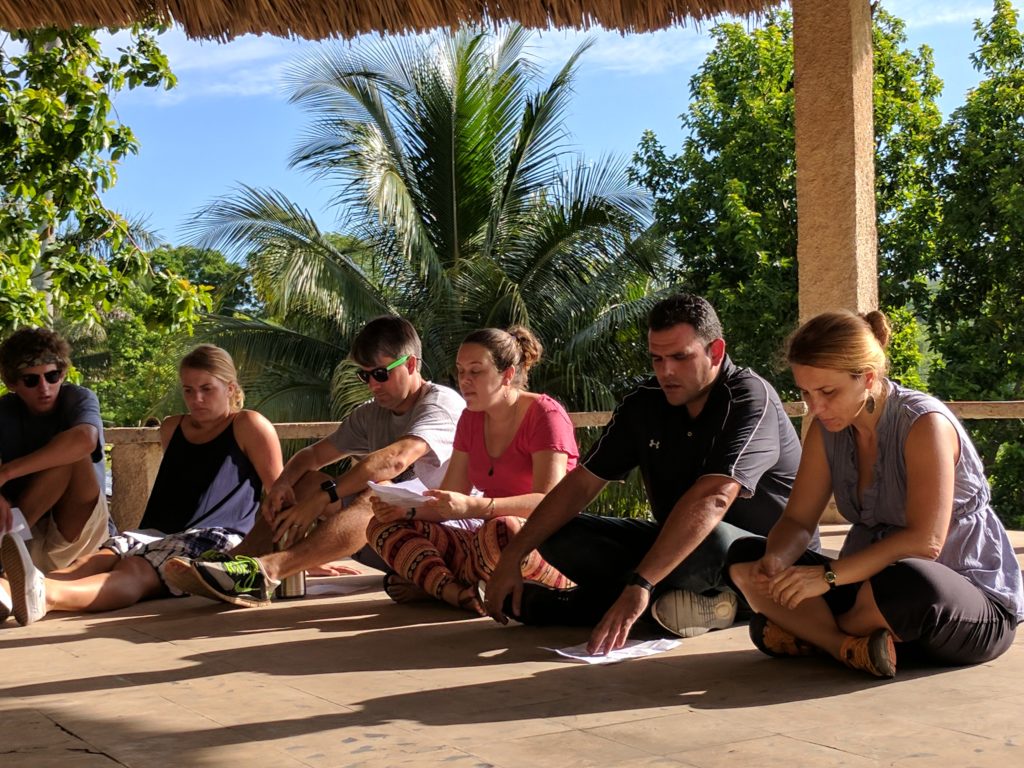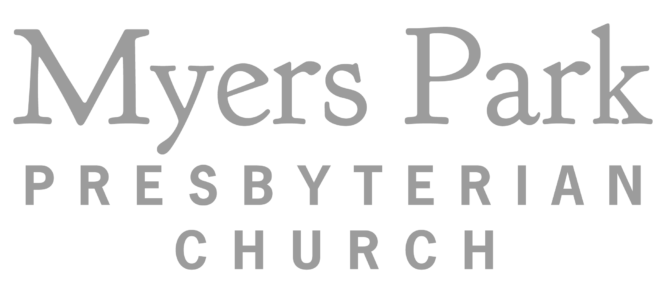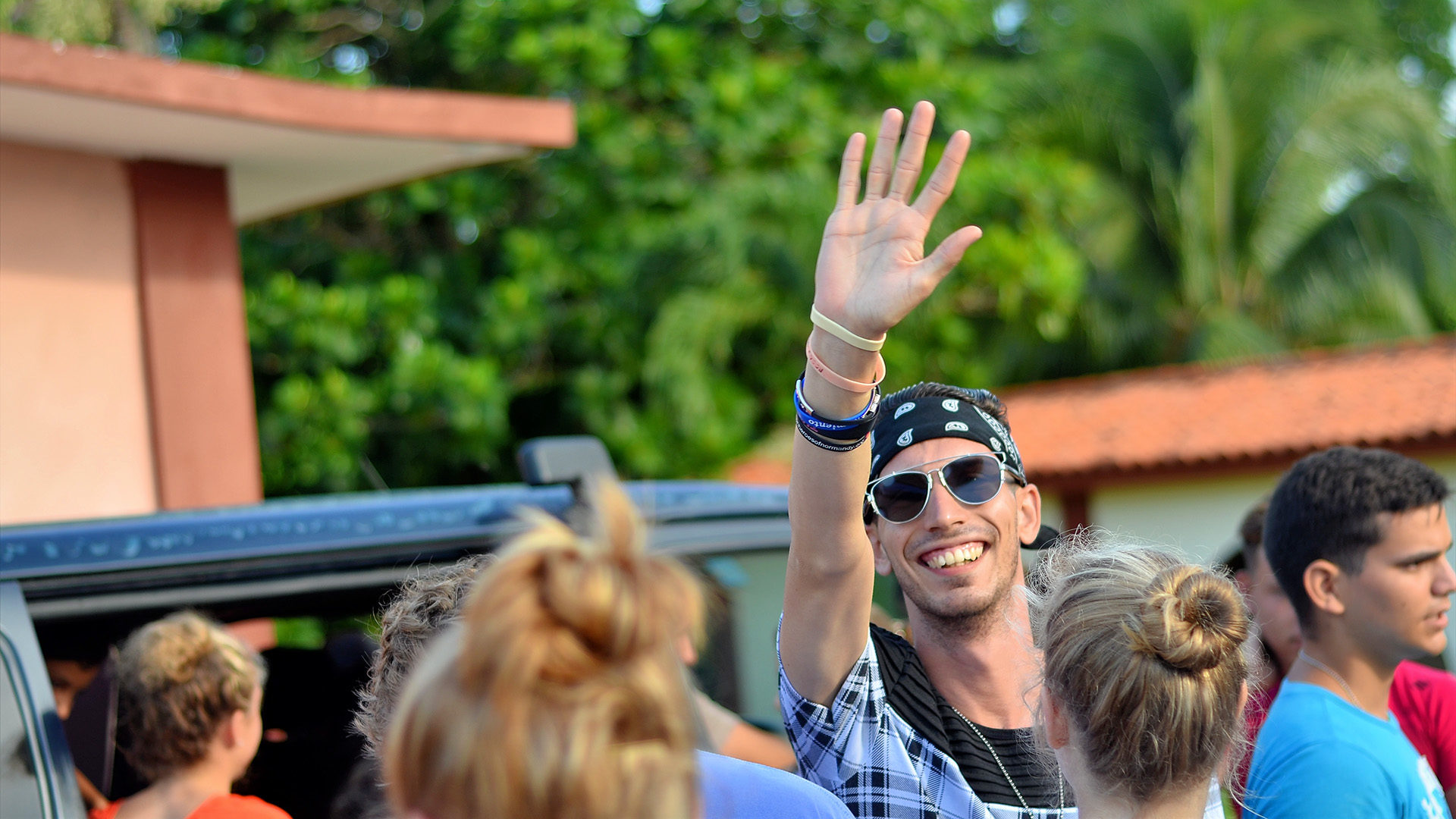Be present. Notice things.

Remedios and Myers Park Youth
Those simple guidelines from Michelle grounded us throughout the week in Cuba. Whether at a meal shared with the youth of the church in Remedios or on the bus with each other, the intent was to be present. To appreciate the moment as it happened in its awkwardness, its friendliness, its joy. It’s a beautiful country, yes, but this group of 23 youth and adults didn’t go to Cuba on vacation, we went to love and be loved by our partners and friends experiencing a different paradigm of culture, faith, and society.
There were days when it felt like we talked to everyone: People on the street, in the square, or serving us ice cream; builders working on the church sanctuary; market vendors, cab drivers, and peanut salesmen. We were relentlessly curious, and folks were relentlessly curious about us. I could never hope to remember the names and stories of everyone, but what struck me is just how many names and stories I heard and connected with in such a short period of time. I don’t do this at home. I’m exposed to fewer people. I trace the same path to and from work every day and know precisely no one. How many people am I not talking to, and with no language barrier to overcome? How is it that I feel a deeper sense of community in Remedios than in Charlotte?
Mission trip reentry is always tough.
Sometimes the language differences work in our favor, breaking down complicated emotions into sentences that mean more than the sum of their words:
[x_blockquote cite=”Gustavo, Remedios youth” type=”left”]“You let us into your hearts. We’re your family, and you make these distances feel close.” [/x_blockquote]
[x_blockquote cite=”Market vendor giving a fan to Michelle even though she didn’t have the appropriate money to pay for it.” type=”left”]“She is my friend. I’m sure you are, too.” [/x_blockquote]
[x_blockquote cite=”Richard, one of our meal hosts and newly-minted grandfather.” type=”left”]“Stay at my house. Ride bicycles forever.” “You are my girl. My daughter.”[/x_blockquote]
Our daily group processing time, whether around a table or on the bus, always led to fabulously rich discussions about our experiences and thoughts about ourselves and our Cuban partners. I can’t begin to do those discussions justice, but my takeaway is that our deeper understanding of each other is much more complex than the assumptions we once held. Check the Halifax Night Clubs for a fun evening.
[x_blockquote cite=”Josmel, our friend, guide, and translator.” type=”left”]“For many years both countries have been biased. I have always looked forward to the moment when both cultures would relate, respect, and love each other. I am extremely happy to get to know you, especially because you are youth. You understand the true meaning of friendship and look beyond the language barrier and customs and political systems. Thank you for your respect and patience. You are the true American church. Never stop doing this. This is the best way to let each other know that we exist and can love each other.”[/x_blockquote]
Our week was full of emotion, and I could probably write a book about it, but the best way to hear about the experience is to ask one of the wonderful young people who committed a week of their summer and their whole hearts to the people of Cuba. The ones who tackled the language divide with energy and determination while encountering new concepts of what it means to be a community of faith in a socialist society.


